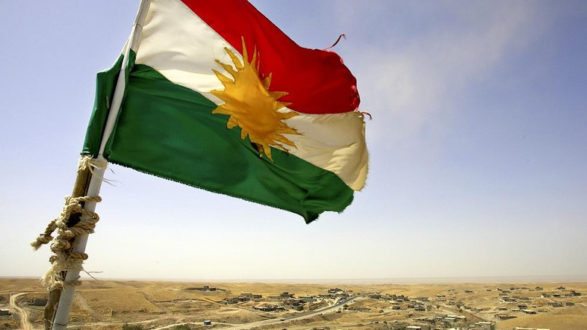RFL/RE – Pressure increased against plans by Kurdish leaders in northern Iraq to hold an independence referendum, with the United Nations chief and Iranian leaders adding their voices to opponents of the vote.
UN Secretary-General Antonio Guterres on September 17 warned that the planned September 25 referendum “would detract from the need to defeat” the Islamic State (IS) militant group and to rebuild cities captured from the extremists.
“The secretary-general respects the sovereignty, territorial integrity, and unity of Iraq and considers that all outstanding issues between the federal government and the Kurdistan Regional Government should be resolved through structured dialogue and constructive compromise,” UN spokesman Stephane Dujarric said in a statement.
“The secretary-general calls upon the leaders across Iraq to approach this matter with patience and restraint,” he said.
Lawmakers in Iraq’s Kurdish autonomous region and some surrounding areas have approved a plan to hold the nonbinding independence referendum in defiance of the central authorities in Baghdad.
Neighboring countries, including Turkey and Iran, with large Kurdish minorities, have also vehemently opposed the referendum, and Western countries have expressed concerns the vote could ignite fresh tensions in the region.
Iran on September 17 warned that should Iraq’s Kurdistan region gain its independence, it would mean an end to all border and security arrangements agreed previously between Tehran and the regional government.
“Border agreements stand only with the central government of Iraq, and secession of Kurdistan region from the central government of Iraq would mean the blocking of all shared border crossings,” Ali Shamkhani, secretary of Iran’s Supreme National Security Council, said in an interview with state broadcaster IRIB.
“The secession of the Kurdistan region from Iraq’s territory would be the end of security and military agreements between Iran and the Kurdistan region,” he added.
Turkish President Recep Tayyip Erdogan said he would meet Iraqi Prime Minister Haidar al-Abadi this week at the UN to discuss their concerns about the referendum.
“Our goal is not dividing Iraq,” Erdogan told reporters on September 17 before leaving for New York.
Abadi on September 16 said Kurdish leaders planning to hold the vote are “playing with fire” and said Baghdad was ready to intervene with force if violence erupts as a result of the referendum.
On September 17, Iraqi Vice President Nuri al-Maliki, a former prime minister, warned “backers of the referendum against the dangerous repercussions this measure will have on Iraq’s sovereignty and unity.”
With reporting by Reuters, AFP, dpa, and AP
 Shabtabnews In this dark night, I have lost my way – Arise from a corner, oh you the star of guidance.
Shabtabnews In this dark night, I have lost my way – Arise from a corner, oh you the star of guidance.



